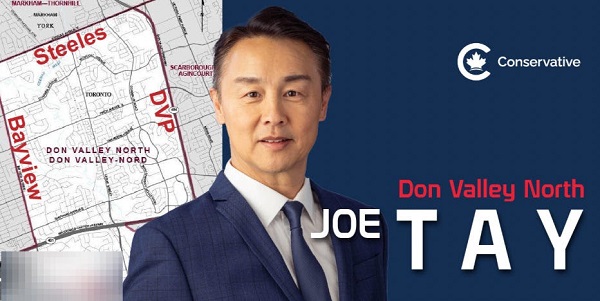Food
RFK Jr. says he and Trump will crack down on ‘poisons’ allowed in American food

From LifeSiteNews
Independent candidate turned Trump campaign surrogate Robert F. Kennedy Jr. says that if former President Donald Trump is returned to the White House next year, the two men will team up to crack down on the number of “poisonous” chemicals permitted in American foods.
In a video published on September 25, Kennedy displayed a wide variety of common pantry staples, from snacks like Doritos and Cheez-Its, to Cap’n Crunch cereal, to even Tylenol and vitamins, to discuss how many things Americans ingest on a weekly basis “include a lot of poisons” that are subject to warning labels and restrictions in other countries, but which he says are responsible for worse mortality rates in the United States.
For example, he focused on “a harmful yellow dye called tartrazine,” otherwise known as Yellow Dye #5, a common food coloring additive. Tatrazine, Kennedy said, can cause tumors, asthma, developmental delays, neurological damage, ADD/ADHD, hormone disruption, gene damage, anxiety, depression, intestinal injuries, and more. But worst of all, it is just one of at least 100 “chemical poisons that our health agencies allow into our children’s food,” he claimed.
The Democrats, who claim to be all about health care have stood by watching other countries ban these poisons that make our kids sick. Enough is enough. President Trump and I are going to stop the mass poisoning of American children. pic.twitter.com/Rf04MrF9e8
— Robert F. Kennedy Jr (@RobertKennedyJr) September 25, 2024
“President Trump and I are going to stop the mass poisoning of American children,” he vowed.
In a statement to NBC News, Trump campaign spokeswoman Karoline Leavitt added that Trump would “work alongside passionate voices like RFK Jr. to Make America Healthy Again by providing families with safe food and ending the chronic disease epidemic plaguing our children.”
Overviews of Yellow Dye #5 on mainstream, corporate medical websites such as Verywell Health and WebMD downplay evidence of its danger but still recognize potential harms and advise only ingesting it in moderation.

Many see the prospect of new investigations finding more conclusive answers to such questions as a welcome promise of a second Trump administration, even if it is more modest than a reevaluation of the COVID-19 shots that many hoped to see when Kennedy, one of the nation’s foremost COVID establishment critics, joined the campaign of the Republican nominee who continues to embrace the injections.
Democrat Vice President Kamala Harris currently leads Trump by by 2% in RealClearPolitics’ popular vote polling average and by 3.6% to 3.9% according to RaceToTheWH (depending on whether Kennedy, whose name still appears on ballots in some states, is counted), but margins remain extremely close in the swing states that will decide the official Electoral College outcome.
Agriculture
Liberal win puts Canada’s farmers and food supply at risk
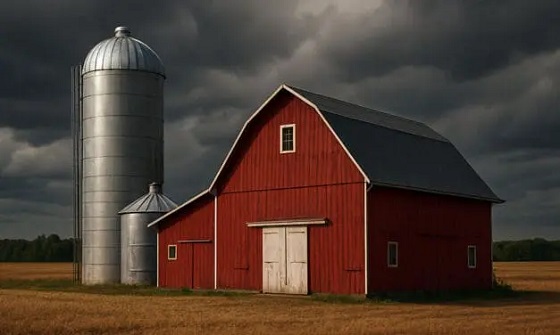
This article supplied by Troy Media.
A fourth Liberal term means higher carbon taxes and trade risks. Could Canada’s farmers and food security be on the line?
The Liberal Party, now led by Mark Carney, has secured a fourth consecutive term, albeit once again with a minority mandate. This time, however, the Liberals have a stronger hand, as they can rely not only on the NDP but also the Bloc Québécois to maintain power.
This broader base of parliamentary support could provide much-needed political stability at a crucial time, particularly as Canada prepares for a new round of trade negotiations with the United States and Mexico.
For the agri-food sector, the implications are significant. From carbon taxes to trade rules, federal decisions play a decisive role in shaping the costs and risks Canadian farmers face.
First and foremost, carbon pricing will remain a central issue. Carney has made it clear that the industrial carbon tax will stay—a policy that continues to erode the competitiveness of Canada’s agri-food sector, where fuel, fertilizer and transportation costs are especially sensitive to carbon pricing. The tax, currently set at $95 per metric tonne, is scheduled to climb to $170 by 2030.
While consumers may not see this tax directly, businesses certainly do. More concerning is the Liberals’ intention to introduce a border carbon adjustment for imports from countries without equivalent carbon pricing regimes. While this could theoretically protect Canadian industry, it also risks making food even more expensive for Canadian consumers, particularly if the U.S., our largest trading partner, remains uninterested in adopting similar carbon measures. Acting alone risks undermining both our food security and our global competitiveness.
Another looming issue is supply management. Although all parties pledged during the campaign not to alter Canada’s system for dairy, poultry and eggs, this framework—built on quotas and high import tariffs—is increasingly outdated. It is almost certain to come under pressure during trade negotiations. The American dairy lobby, in particular, will continue to demand greater access to Canadian markets. The Liberals have a chance to chart a more forward-looking path. Modernizing supply management could lead to a more competitive, resilient industry while providing consumers with greater choice and better prices.
The previous Parliament’s passage of Bill C-282, which sought to shield supply managed sectors from all future trade negotiations, was a deeply flawed move.
Fortunately, the new parliamentary makeup should make it far less likely that such protectionist legislation will survive. A more pragmatic approach to trade policy appears possible.
On the domestic front, there are reasons for cautious optimism. The Liberals have promised to eliminate remaining federal barriers to interprovincial trade and to improve labour mobility, longstanding obstacles to the efficient movement of agri-food products across Canada. For example, differing provincial rules often prevent products like cheese, meat or wine from being sold freely across provinces, frustrating farmers and limiting consumer choice. Momentum was building before the election, and it must continue if we are serious about building a stronger domestic food economy.
Infrastructure investment is another bright spot. The Liberals pledged more than $5 billion through a Trade Diversification Corridor Fund to upgrade Canada’s severely undercapitalized export infrastructure. Strategic investment in trade gateways is overdue and critical for agri-food exporters looking to reduce reliance on the United States and expand into global markets.
Finally, the Liberal platform was alone in explicitly committing to support food processing in Canada, a crucial pillar of domestic food security. An increased focus on manufacturing will not only create jobs but also reduce reliance on imported food products, making Canada more resilient in the face of global disruptions.
Farmers have long felt sidelined by urban-centric Liberal governments. The past four years were marked by regulatory and trade clashes that deepened that divide. The hope now is that with greater political stability and a clearer focus on competitiveness, the next four years will bring a more constructive relationship between Ottawa and Canada’s agri-food sector.
If the Liberals are serious about food security and economic growth, now is the time to reset the relationship with Canada’s farmers, not ignore them yet again.
Dr. Sylvain Charlebois is a Canadian professor and researcher in food distribution and policy. He is senior director of the Agri-Food Analytics Lab at Dalhousie University and co-host of The Food Professor Podcast. He is frequently cited in the media for his insights on food prices, agricultural trends, and the global food supply chain.
Troy Media empowers Canadian community news outlets by providing independent, insightful analysis and commentary. Our mission is to support local media in helping Canadians stay informed and engaged by delivering reliable content that strengthens community connections and deepens understanding across the country.
2025 Federal Election
Poilievre will cancel Mark Carney’s new Liberal packaging law and scrap the Liberal plastic ban!

From Conservative Party Communications
Conservative Leader Pierre Poilievre promised today that a new Conservative government will stop Mark Carney’s proposed Liberal food tax and scrap the existing Liberal plastic ban. Poilievre will:
- Stop proposed new labelling and packaging requirements that will raise the cost of fresh produce by as much as 34% and cost the average Canadian household an additional $400 each year.
- Scrap the Liberal plastics ban, including the ban on straws, grocery bags, food containers and cutlery, and other single-use plastics, letting consumers and businesses choose what works for them.
- Protect restaurants, grocers, and low-income Canadians from one-size-fits-all packaging rules that disproportionately affect those who can least afford it.
“After the Lost Liberal Decade, many Canadians can barely afford to put food on the table. And now Mark Carney and the Liberals want to make it even harder with a new food packaging law that will raise the price of food–again,” said Poilievre. “A new Conservative government will keep food prices down by scrapping the Liberal plastic ban and stopping Carney’s new Liberal food tax.”
After a decade of out-of-control spending and massive tax increases, families are spending $800 more on food this year than they did in 2024, and food banks had to handle a record two million visits in a single month. In Montreal, 44 percent of CEGEP students are experiencing some form of food insecurity, while places like Hawkesbury, Kingston, Toronto and Mississauga have all declared food insecurity emergencies.
And food prices are still rocketing upwards, surging by 3.2% over the last year, with no end in sight. In the last month alone, food inflation increased by 1.9 percentage points—the largest monthly jump in food prices in decades.
As if this wasn’t bad enough, Liberals have made life even more expensive and inconvenient for Canadians by banning plastics – including everything from straws to bags to food packaging. The current Liberal ban on single-use plastics will cost Canadians $1.3 billion dollars over the next decade.

Now Mark Carney wants to make it worse by adding complicated and costly new food packaging rules that will drive up the price of food even more–in effect, a new Liberal food tax. Plastic food packaging makes up 1/3 of all plastic packaging in Canada. The proposed Liberal food tax will cost the average Canadian household an additional $400 each year, waste half a million tonnes of food, decrease access to imported fruit and produce, and increase food inflation. The Chemistry Industry Association of Canada has also warned that this tax will put up to 60,000 Canadians out of work.
“The Liberals’ ideological crusade against convenience has already driven up food prices and the last thing Canadians need is Mark Carney’s new food tax added directly to your grocery bill,” said Poilievre. “The choice for Canadians is clear, a fourth Liberal term that will make food even more expensive or a new Conservative government that will axe the food tax and bring back straws, grocery bags and other items, to make life more affordable and convenient for Canadians – For a Change.”
-

 Business2 days ago
Business2 days agoTrump’s bizarre 51st state comments and implied support for Carney were simply a ploy to blow up trilateral trade pact
-
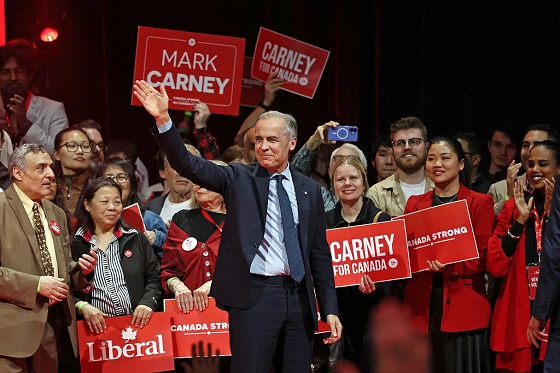
 Alberta1 day ago
Alberta1 day agoAlberta’s future in Canada depends on Carney’s greatest fear: Trump or Climate Change
-
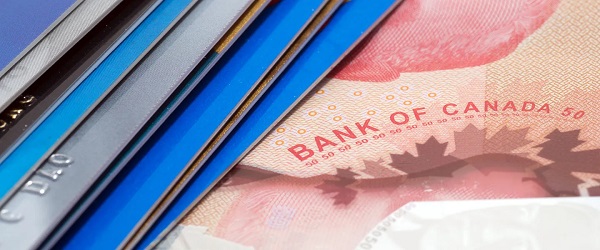
 Business2 days ago
Business2 days agoNew federal government plans to run larger deficits and borrow more money than predecessor’s plan
-

 Business2 days ago
Business2 days agoScott Bessent says U.S., Ukraine “ready to sign” rare earths deal
-
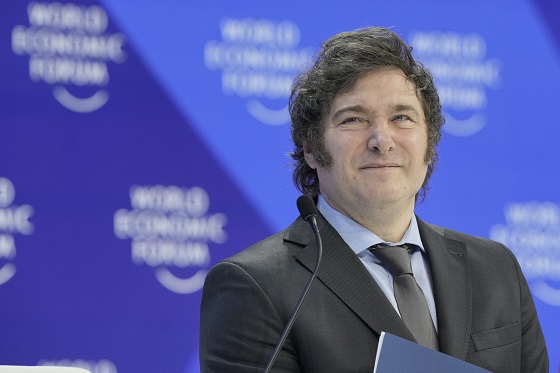
 International2 days ago
International2 days agoJavier Millei declassifies 1850+ files on Nazi leaders in Argentina
-

 Frontier Centre for Public Policy2 days ago
Frontier Centre for Public Policy2 days agoTrust but verify: Why COVID-19 And Kamloops Claims Demand Scientific Scrutiny
-

 Bjorn Lomborg2 days ago
Bjorn Lomborg2 days agoHow Canada Can Respond to Climate Change Smartly
-

 Agriculture1 day ago
Agriculture1 day agoLiberal win puts Canada’s farmers and food supply at risk
